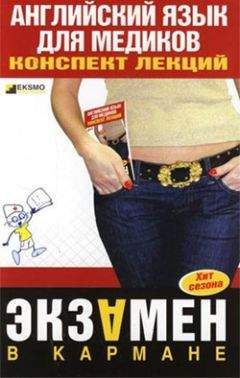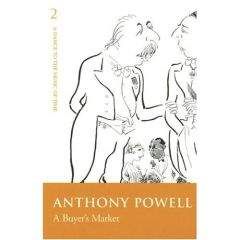13. The waiter is putting a bottle of lemonade in front of him.
14. Susan is making a new dress for her birthday party.
15. She is open ing a box of chocolates.
16. They are writing a dictation.
17. I am drawing a picture.
18. She is cooking dinner.
19. We are dancing.
20. They are jumping.
Answer the questions.
1. Into how many stages is the act of swallowing divided?
2. Is the first stage under voluntary control?
3. What is the second stage in the act of swallowing?
4. Through what in the second stage the food is guiding?
5. What does the third stage in the act of swallowing involve?
6. How is the normal position of the empty human stomach?
7. How are shaped the majority of normal stomachs?
8. How can absorption be increased?
9. Who has normally lower stores of iron?
10. Where is iron lost mostly?
Make the sentences of your own using the new words (10 sentences). Find the verb to be in the text. Explain why it is used in such a way?
Liver, the pancreas and the kidneys are the organs primarily engaged in the intermediary metabolism of the materials resorbed from the gasro – intestinal tract and in the excretion of metabolic waste products. Of these 3 organs the liver performs the most diverse func tions. It acts as the receiving depot and distributing center for the majority of the products of intestinal digestion and plays a major role in the intermediary metabolism of carbohydrates, fats, proteins and purines.
It controls the concentration of cholesterol esters in the blood and utilizes the sterol in the formation of bile acid. The liver takes in the regulation of the blood volume and in water metabolism and distribution. Its secretion, the bile, is necessary for fat diges tion.
The liver is a site for the formation of the proteins of the blood plasma, especially for fibrinogen, and also forms heparin, also forms heparin, carbohydrate which prevents the clotting of the blood. It has important detoxicating functions and guards the organism against toxins of in testinal origin as well as other harmful substances. The liver in its detoxicating functions and manifold metabolic activities may well be соnsidered the most important gland of the body.
New words
liver – печень
pancreas – поджелудочная железа
kidneys – почки
organ – орган
primarily – прежде всего
engaged – вовлеченный
intermediary – промежуточный
metabolism – метаболизм
gasro-intestinal tract – желудочно-кишечный тракт
excretion – выделение
waste – отходы
diverse – разнообразный
func tions – функции depot – отложение
digestion – переваривание
major role – главная роль
cholesterol – холестерин
esters – жиры
sterol – стерин
bile acid – желчная кислота
regulation – регулирование
fat diges tion – переваривание жиров
blood plasma – плазма крови
fibrinogen – фибриноген
clotting – тромб
origin – происхождение
heparin – гепатит
detoxicating functions – функции детоксикации
toxins – токсины
manifold – разнообразный
gland of the body – железа тела
Спряжение глагола to write в Past Perfect Tense Таблица 15
Поставьте глаголы в Past Simple и Past Perfect.
1. When I (to come) home, mother already (to cook) dinner.
2. When father (to return) from work, we already (to do) our homework.
3. When the teacher (to enter) the classroom, the pupils already (to open) their books.
4. Kate (to give) me the book which she (to buy) the day before.
5. Nick (to show) the teacher the picture which he (to draw).
6. The boy (to give) the goats the grass which he (to bring) from the field.
7. Mother (to see) that Nick (not to wash) his hands.
8. The teacher (to understand) that Marina (not to do) her homework.
9. I (to know) that my friend (not yet to come).
10. Tom (to return) from the cinema at five o'clock.
11. Tom (to t return) from the cinema by five o'clock.
12. I (to finish) my homework at seven o'clock.
13. I (to finish) my homework by seven o'clock.
14. He (to think) that he (to lose) the money.
15. Ann (to tell) me that she (to see) an interesting film.
16. When I (to wake) up yesterday, father already (to go) to work.
17. Nick (to think) that his father (not yet to come) home.
18. Mary (to tell) us that she (to cook) a good dinner.
19. Yesterday I (to find) the book which I (to lose) in summer.
20. When we (to come) to the station, the train already (to leave).
Answer the questions.
1. Which organs are primarily engaged in the intermediary metabolism?
2. Which of 3 organs perform the most diverse functions?
3. How does it act?
4. Which role does liver play?
5. What does it control?
6. Where the cholesterol esters are concentrated?
7. What the bile is necessary for?
8. What does liver utilize?
9. What prevents the clotting of the blood?
10. What is the most important gland of the body?
Make the sentences of your own using the new words (10 sentences).
Find the Present Simple Tense in the text. Explain why it is used in such a way?
Find one word, which is a little bit different in meaning from others (найдите одно слово, которое немного отличается от других по смыслу):
1) a) liver; b) jam; c) kidney;
2) a) pancreas; b)organ; c) winter;
3) a) summer; b) blood; c) vein;
4) a) cholesterol; b) ice; c) bile;
5) a) clotting; b) snow; c) vessel.
ЛЕКЦИЯ № 43. The urinary system
The urinary system, consisting of the kidneys, bladder, and excretory ducts (ureters and urethra) is formed mainly from mesodermal and endodermal derivatives with a smaller con tribution from the ectoderm. Three separate systems form sequentially. The pronephros is vestigial; the mesonephros may function transiently, but then mainly disappears; the metanephros develops into the definitive kidney. The pronephric/ mesonephric ducts provide important contribu tions to the male reproductive system. The permanent excre tory ducts are derived from the metanephric ducts, the uro-genital sinus, and surface ectoderm.
Renal development is characterized by three successive, slightly over lapping kidney systems.
Pronephros: Segmented nephrotomes appear in the cervical intermediate mesoderm of the embryo in the fourth week. These structures grow laterally and canalize to form nephric tubules. Successive tubules grow caudally and unite to form the pronephric duct, which empties into the cloaca. The first tubules formed regress before the last ones are formed. By the end of the fourth week, the pronephros disappears.
Mesonephros: In the fifth week, the mesonephros appears as «S-shaped» tubules in the intermediate mesoderm of the thoracic and lumbar regions of the embryo.
The medial end of each tubule enlarges to form a Bowman's capsule into which a tuft of capillaries, or glomerulus, invaginates.
The lateral end of each tubule opens into the mesonephriс (Wolffi-an) duct, an intermediate mesoderm derivative.
Mesonephric tubules function temporarily and degenerate by the beginning of the third month. The mesonephric duct pesists in the male as the ductus epididymidis, ductus deferens, and the ejaculatory duct.
Metanephros: During the fifth week, the metanephros, or permanent kidney, develops from two sources: the ureteric bud, a diverti-culum of the mesonephric duct, and the metanephric mas, from intermediate mesoderrn of the lumbar and sacral regions. The ureteric bud penetrates the metanephric mass, which cordenses around the diverti-culum to form the metanephrogen cap. The bud dilates to form the renal pelvis, which subsequently splits into the cranial and caudal major calyces. Each major calyx buds into the metanephric tissue to form the minor calyces. One-to-three million collecting tubules develop from the minor calyces, thus forming the renal pyramids. Penetration of collecting tubules into the metanephric mass induces cells of the tissue cap to form nephrons, or excretory units. The proximal nephron forms Bowman's capsule, wherea the distal nephron connects to a collecting tubule.
Lengtheningy of the excretory tubule gives rise to the proximal convoluted tubule, loop of Henle, and the distal convoluted tubule.
The kidneys develop in the pelvis but appear to «ascend» into the abdomen as a result of fetal growth of the lumbar and sacral regions. With their ascent, the ureters elongate, and the kidneys become vascu-larized by lateral splanchnic arteries, which arise from the abdominal aorta.
Bladder and urethra
Adrenal glands lie The proximal nephron forms above the kidneys and are of dual origin. The cortex develops from the mesoderm of the coelomic epithelium, and the medulla is derived from neural crest cells, which migrate to the area and differentiate to form catecholami-ne-producing cells. Urorectal septum divides the cloaca into the ano-rectal canal and urogenital sinus by the seventh week.
The upper and largest part of the urogenital sinus becomes the urinary bladder, which is initially continuous with the allantois. As the lumen of the allantois becomes obliterated, a fibrous cord, the urachus, connects the apex of the bladder to the umbilicus. In the adult, this structure becomes the median umbilical ligament. The mucosa of the trigone of the bladder is formed by the incorporation of the caudal me-sonephric ducts into the dorsal bladder wall. This mesodermal tissue is eventually replaced by endodermal epithelium so that the entire lining of the blad der is of endodermal origin. The smooth muscle of the bladder is derived from splanchnic mesoderm.
Mile urethra is anatomically divided into three portions: prostatic membranous, and spongy (penile).
The prostatic urethra, membranous urethra, and proximal penile urethra develop from the narrow portion of the uro genital sinus below the urinary bladder. The distal spongy urethra is derived from the ectodermal cells of the glans penis.
Fimale urethra: The upper two-thirds develops from the esonephric ducts, and the lower portion is derived from the ogenital sinus.
The urinary system is the major system involved in the excre tion of metabolic waste products and excess water from the body. It is also important in maintaining a homeostatic bal ance of fluids and electrolytes. The urinary system consists of two kidneys, two ureters, the urinary bladder, and the ure thra. Urine is produced by the kidneys and is then transmit ted via the ureters to the bladder for temporary storage. The urethra is the final pathway that conveys urine to the exteri or. This system also has an important endocrine function in the production of renin and erythropoietin, which influence blood pressure and red blood cell (RBC) formation, respec tively.
New words
urinary system – мочевая система
consisting of – состоящий из
kidneys – почки
bladder – мочевой пузырь
excretory ducts – выделительные трубочки
mesodermal – мезодермальный
endodermal – эндодермальный
derivatives – производные
con tribution – вклад
sequentially – последовательно
pronephros – первичная почка
vestigial – остаточный
transiently – скоротечно
definitive – категорический
permanent – постоянный
duct – трубочка
bud – зародыш
to dilates – расширять
urogenital – мочеполовой
cloaca – клоака
anorectal canal – канал анаректальный
waste products – ненужные продукты
maintaining – поддержание
a homeostatic balance – гомеостатический баланс
fluids – жидкости
electrolytes – электролиты
Раскройте скобки, употребляя глаголы в Past Simple, Past Continuous и Past Perfect.
1. When I called at his house, they (to tell) me that he (to leave) an hours before.
2. When I came to the station, I (not to) find my friend there as I (to be) five minutes late and the train (to leave).
3. He (to want) to visit the place where he (to live) in his childhood.
4. The telegram (to come) some minutes after he (to leave).
5. She (to look) very tired as she (to work) hard.
6. I (to return) to the hotel only late at night as I (to lose) my way in the fog. When I (to come) up to my room, I (to see) Pete who (to stand) at the door of the room. He (to wait) for me as he (to lose) his key and could not get in.
7. When I (to wake) up, it (to be) already ten o'clock. I (to call) my brother. Nobody (to answer). He already (to leave).
8. I (to go) up to the open window. The rain (to stop) and the sun (to shine) brightly. The birds in the garden (to sing). The morning (to be) fine.
9. When the rain (to stop) I (to look) out of the window and (to see) John who (to stand) under a tree waiting for me.
10. Last night we (to go) to a football match.
11. We (to take) a bus. The bus (to be) full, of people as many people (to want) to see the match.
12. We (to get) off the bus and (to go) in the direction of the stadium.
13. While we (to cross) the road, I (to see) Victor.
14. He (to stand) at the corner.
15. He said he (to wait) for his friend who (to come) to St. Petersburg the day before and (to wish) to see the new stadium.
16. A man (to come) up to me and asked if I (to have) a spare ticket for-the match.
17. Victor told us that two boys just (to ask) him whether he (to have) a spare ticket.
18. We (to enter) the stadium just as the foot ball players (to come) out on to the field.
19. At the entrance to the stadium we (to meet) Sergei.
20. He (to show) us to our seats and we (to agree) to meet in the refreshment-room during the interval. He (to ask) me if I (to play) football in my childhood.
Раскройте скобки, употребляя глаголы в Past Simple, Past Continuous и Past Perfect.
1. I (to sit) in an armchair and (to think) of my coming trip across the North Sea when the door suddenly (to open) and an old friend of mine whom I (not to see) for a very long time (to enter) the room.





![Rick Page - Make Winning a Habit [с таблицами]](https://cdn.my-library.info/books/no-image.jpg)